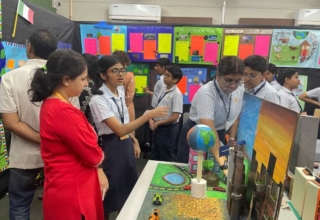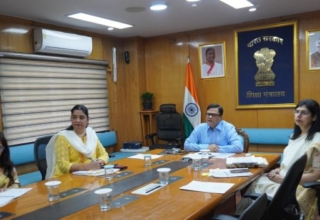
The 250-acre campus of the Thapar Institute of Engineering and Technology (TIET), Patiala (Punjab) on any working day is a living space for more than 15000 people that includes 10K+ students using 48 buildings including 16 hostels and 16 kitchens. As such an estimated 3.5 tons of waste on a regular working day on TIET campus.
Now work is in progress to soon turn it into a robust Zero Waste Ecosystem in collaboration with ‘Saahas Zero Waste’ with the implementation of a comprehensive waste management system. About 18 categories of waste have been identified, including biomedical waste, e-waste, battery waste, waste oil, and other waste generated on the campus for this purpose.
The institute has constituted a Zero Waste Team led by Dr. Anoop Verma, Professor, Department of Energy & Environment. Over the last six months, TIET has analyzed in detail the waste generated within its campus and identified the gaps that need to be addressed. Through this initiative TIET is now able to completely trace, collect and manage 100% of the waste generated.
The institute chalked out solutions to address each gap and implemented efficient systems and facilities to tackle waste management. Designated areas have been earmarked for waste segregation and composting. Segregated waste is directed to specific areas: dry waste to a 3000 sq. ft. Material Recovery Facility (MRF), and wet waste to composting units. Improvements in composting processes and new strategies for cooked and uncooked waste have been implemented, with plans for dehydrators, composters, or biogas units.
A key part of the new system involved formalizing waste workers as full-time employees of TIET, ensuring compliance with environmental and social regulations. This change has stabilized their work conditions and integrated their efforts with local aggregators and recyclers, enhancing the overall waste management ecosystem.
Talking about this initiative, Dr. Anoop Verma shared, “Sustainability is the way of life, and future generations should realize this more than anyone else. As educationists, it is our responsibility to inspire them and set new benchmarks for a greener planet. With this vision, we set the ambitious goal of converting our expansive and busy campus into a Zero-waste zone and promoting a zero-waste ecosystem in the entire northern region. Our initiative aims at ensuring that no waste goes into landfills. TIET’s Zero Waste Team has done a tremendous job so far, and we are hopeful that we will achieve this vision very soon. We also intend to motivate a positive behavioral change within the education sector and society through this initiative. The remarkable success owes its success to the steadfast support of Dr. Gurbinder Singh, Registrar, TIET, and the astute guidance and visionary leadership of Prof. Padmakumar Nair, Director, TIET.”










